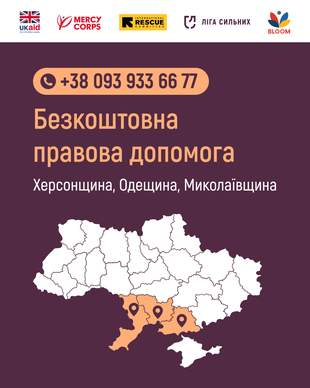Меню
Соціальні мережі
Розділи
Recognizing and Overcoming Anxiety Disorders: Essential Strategies for Relief
This article also available in English190

Image generated by AI
In times of war, the level of anxiety in society rises to critical levels. Constant danger, uncertainty, loss, and destruction create chronic stress, which can lead to the development of anxiety disorders. In such circumstances, it is important to recognize the symptoms of anxiety in time and know how to cope with it.
What is anxiety and anxiety disorders?
Anxiety is an emotional and physiological response to a real or imagined threat. It's a normal defense mechanism that helps you avoid danger, but when anxiety becomes excessive or persistent, it becomes an anxiety disorder.
The main characteristics of anxiety:
- Emotional symptoms: tension, anxiety, fear without a specific cause.
- Physical symptoms: heart palpitations, sweating, trembling, shortness of breath, headaches, abdominal pain.
- Cognitive symptoms: overthinking problems, catastrophic thinking, difficulty concentrating.
- Behavioral reactions: avoidance of certain situations that cause fear.
Typical anxiety disorders:
- Generalized anxiety disorder (GAD).
- Panic disorder.
- Phobias.
- Social anxiety.
- Post-traumatic stress disorder (PTSD).
- Obsessive-compulsive disorder (OCD).
If anxiety interferes with your daily life, you should consult a psychotherapist or psychiatrist.
How to overcome anxiety
To overcome anxiety, it's important to combine psychological, physiological, and behavioral methods. Here are some strategies:
1. Breathing techniques
Slow, deep breathing calms the nervous system. The 4-4-6 technique:
- Inhale for 4 seconds;
- Hold your breath for 4 seconds;
- Exhale for 6 seconds.
2. Physical activity
Regular walks, yoga, or exercise can help reduce stress hormones (cortisol) and increase endorphins.
3. A rational approach
Ask yourself the following questions:
- Is my anxiety justified?
- What is the evidence for and against my fear?
- What is the worst that can happen and how can I cope with it?
4. Limiting incentives
Reduce:
- Watching the news;
- Staying in social networks;
- Caffeine, alcohol, nicotine.
5. Create a routine
Planning your day, getting enough sleep and eating create a sense of stability and control.
6. Mindfulness practices
Meditation, mindfulness, and relaxation reduce stress and train the brain to live in the here and now.
Mindfulness, or mindfulness meditation, is a Buddhist teaching that involves deepening awareness of one's own thoughts, feelings, and sensations, as well as observing aspects of the environment.
7. Psychotherapy
- Cognitive behavioral therapy (CBT) is an effective method for anxiety disorders.
- Gestalt therapy, psychoanalysis, and art therapy can also be helpful. Consult your doctor.
8. Medication support
In case of severe anxiety, a psychiatrist may prescribe:
- Anxiolytics;
- Antidepressants;
- Sleeping pills (temporarily).
It is important not to ignore anxiety. It signals that something in your life needs attention. Start small, step by step.









